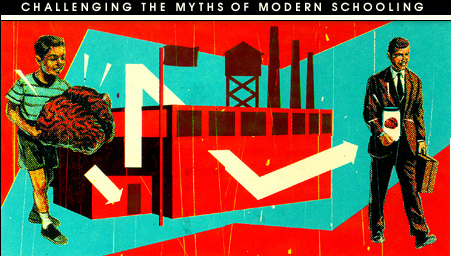

|
 |
Taking Chance
|
Please go to the new Coffee Coaster site implemented more gracefully in Wordpress. Full conversion by 9/12. This page: http://brianrwright.com/CoffeeCoasterBlog/?p=1266 |
Kevin Bacon ... Lt. Col. Mike Strobl
Tom Aldredge ... Charlie Fitts
Nicholas Art ... Nate Strobl
Blanche Baker ... Chris Phelps
Tom Bloom ... Navy Chaplain
Guy Boyd ... Gary Hargrove
James Castanien ... Robert Orndoff
Gordon Clapp ... Tom Garrett
Lt. Col. Mike Strobl: If I'm not over there, what am I? Those guys, guys like Chance... they're Marines.
Charlie Fitts: And you think you're not? Want to be with your family every night - you think you have to justify that? You'd better stop right there, sir. You've brought Chance home. You're his witness now. Without a witness, they just disappear.
You might want to check your supply of Kleenex before you slip Taking Chance into the DVD player. As you realize from the trailer, this is a story about a Marine escort (a real-life Lt. Colonel Mike Strobl played by Kevin Bacon) for a casket containing a young "killed-in-Iraq" soldier[1] named Chance Phelps. Chance is, or was, a real-life person, too.
In the Spring of 2004, Colonel Strobl has a desk job for the Marines, and is responsible for tracking casualties and performing various assessments of numbers of troops needed, what sorts of injuries are prevalent, locations for the carnage, and so on. One day he notes a Marine, 19-year-old Lance Corporal Chance Phelps, listed among those killed by hostile fire in Al Anbar Province, Iraq. What draws Colonel Strobl's attention to the name is that Phelps' hometown is the same as his own: Clifton, Colorado.
Strobl is a Desert Storm veteran with 17 years of military service, and he's deeply moved in this instance to want to personally become the Marine escort for this unfortunate soldier. The Marines provide such a service for every fallen comrade, but seldom using an officer with the rank of lieutenant colonel. Not only is Strobl upset that his recommendations to increase troop strength (in order to minimize future casualties) are falling on deaf ears, he's angry that the politicians don't want anyone in the country to know that our men and women are, in fact, being killed.
By accompanying the remains of Corporal Phelps, Strobl feels he may be able to achieve some kind of personal catharsis, as well as pay his respects to the real people who die a little bit when one of their own dies entirely for "whatever policy is being implemented by those in power." Phelps' family has moved to Dubois, Wyoming, and his parents have divorced. Still, everyone in this town where Chance grew into young adulthood—he was quite the local hero, active in sports, liked by the girls, outgoing and personable—feels a great loss.
Phelps was killed in action at approximately 13:30 on April 9, 2004 (Good Friday), outside Ar Ramadi, Iraq. Phelps's unit was conducting convoy escort (including the assistant commander of the 1st Marine Division, Brigadier General John F. Kelly) when they came under heavy small arms fire, including rocket-propelled grenades. Despite being wounded, Phelps refused to be evacuated, and instead manned his M240 machine gun (also reported to have been a M2 .50 caliber machine gun) to cover the evacuation of the rest of his convoy. Upon withdrawal, he sustained a fatal wound to the head.
Strobl's commanding officer suggests that Strobl is too high-ranking to be performing escort service, but relents as he sees in Strobl's eyes the sadness and desire to no longer hide from the backside realities of war in a USMC-base (Quantico, Virginia) cubicle. Like many Americans, inside the military or out, Strobl doesn't accept the Pentagon/CIA policy of "don't see, don't hear, don't say" re: the flag-draped caskets heading back into the country by the dozens.
"What do the leaders want us to think is coming back in boxes, bananas?"
And from his true account, Strobl shows the public wants desperately to know, to understand, and to share their love with the grieving. Taking Chance takes all of us along the highways and flyways these dead soldiers follow in return to their final resting places. From Dover, Delaware, to Philadelphia by hearse, from there to Minneapolis, to Billings, Montana, by plane, and then by car to Phelps' Wyoming roots, the escorting team—for much of the journey, Strobl is the sole attendant—picks up person after person of solemn audience.
The scene on the Montana highway is particularly poignant: The funeral director meets Strobl at the airport, they take off with the flag-draped casket in back of the station wagon. The Stars and Stripes are readily seen by the (very few) motorists passing by on the vast, scenic hills and valleys of Montana into Wyoming. Everyone knows what's going on. This is a fallen "warrior."[2] He's one of us, and he deserves our commemoration, our respects. So after a truck passes and turns on its headlamps, then a couple of cars do the same, other vehicles fall in line on the caravan's 'front door' or 'back door' in an impromptu funeral procession.
Other quiet moments emerge from people realizing what Strobl is up to. The teenage kid who drives Strobl to pick up the casket is antiwar—a friend of his bought the farm in Iraq—but wants to have a job that helps out, that "means something." On the plane, a flight attendant hands Strobl a religious pendant. Indeed, Strobl's own actions of pride and respect are special quiet moments of their own: at one point the body has to stay in the airport hangar baggage area overnight, so instead of arranging for his own accommodations in a nearby hotel, Strobl gets the workers to let him bunk down there in the hangar.
I'm not sure when I felt the first upwelling of tears, but it was early on. Probably at the same time that it dawns on Colonel Strobl that inside the special box that rolls off the transport plane lies a boy that once lived and laughed and loved, and whose family and friends are all torn apart by his unscheduled, untimely, incomprehensible departure from their lives. In incident after incident, while we ride with the colonel and his eternally silent new friend—as baggage guys, pilots, truck drivers, and passersby give silent homage—believe me, it's enough to make a stone-hearted drill sergeant break down and bawl. And THEN they arrive for the remembrances and final rites in Wyoming!
The experience was so moving to Colonel Strobl that he turned his trip report into a story, which eventually led to the movie. The special features on this DVD are as important as the film itself, because you see the real people who were left behind by this brave young man.
Most critics refer to Taking Chance as a nonpolitical film, taking no sides against the war or for it. But any movie that I've ever seen about war, or that I believe most of you have ever seen, or will ever see, is an antiwar film. Nobody is prowar—except perhaps the neocon psychos in the Bush White House[3] and their ilk in the (inter)national security state. The only question is whether one regards war as a matter of necessity: the film pays tribute to all of the men and women who have given their lives in military service as well as to their families... regardless of political considerations.
And, frankly, the nonjudgmental approach is the only appropriate manner to view this movie. When one moves into analysis, everything meaningful about the lives of the victims disappears. Not to mention the sadness of what befalls our country. Indeed, the way the writing and directing penetrate directly through the mind and into the heart is its magnificent virtue. Every good person, war or peace, needs to sit back and let the images, words, and music flow over him.
I don't think one can find a more anti-government, more anti-this-government, more anti-this-government's imperial and treasonous aggression than me. BUT, I'm so happy to realize that as I regard the real losses of real men-in-arms for the United States military, such as the story of Taking Chance, I can still cry like a baby. Still, after the tears have dried, I/we have to be willing to stand up to "the Unspeakable" forces that perpetuate the war machinery that decimates our people... and so many hundreds of thousands of real people on "the other side." They count, too.
The movie, and movies like this one, makes me consider what, in fact, our American soldiers fight and die for in any of the wars. They are my countrymen. And I would have to say their deaths serve to remind us that wars such as Iraq and Afghanistan—and Vietnam, and possibly even WW1, WW2, and Korea—are fought for no valid reason whatsoever (only to serve unknown financial interests)... and that these men died solely to remind us to stop such wars and such pointless deaths.
Fundamentally, as real-life human beings, in this country or that one, we have to learn to abandon the blind-obedience-to-authority syndrome. [Requiring a formal declaration of war according to the Constitution would be a big help as well.]
[1] Apparently Marines don't like to be referred to as soldiers, so just think of the victim as a former person in the US armed forces.
[2] I hate to use that term, because the war in Iraq lasted for about three weeks. (We won.) Same for Afghanistan. After that it's an occupation. It makes about as much sense calling what American soldiers are doing in the Persian Gulf "warrioring" as it does to say a SWAT team raiding a marijuana clinic is "citizen-protection servicing." But people will feel how they will, and there's a huge need for people to feel that the injuries and the dying "mean something"... and that those who suffer from the conflict are doing something right, courageous, and important for our country.
[3] ... and now the Bama White House. The fact is—and I can't believe I ever was taken in my Obama's peace and civil liberty talk—Barack is working in lockstep with the same folks who brought you all the national security state crimes, from JFK's murder to 9/11. Indeed, he was groomed by the CIA after graduating from Columbia in 1983. It's a matter of public record.
###


Click banner to
order, click here
for book review

Click banner to
order, click here
for book review
 |
 |
|||
| |